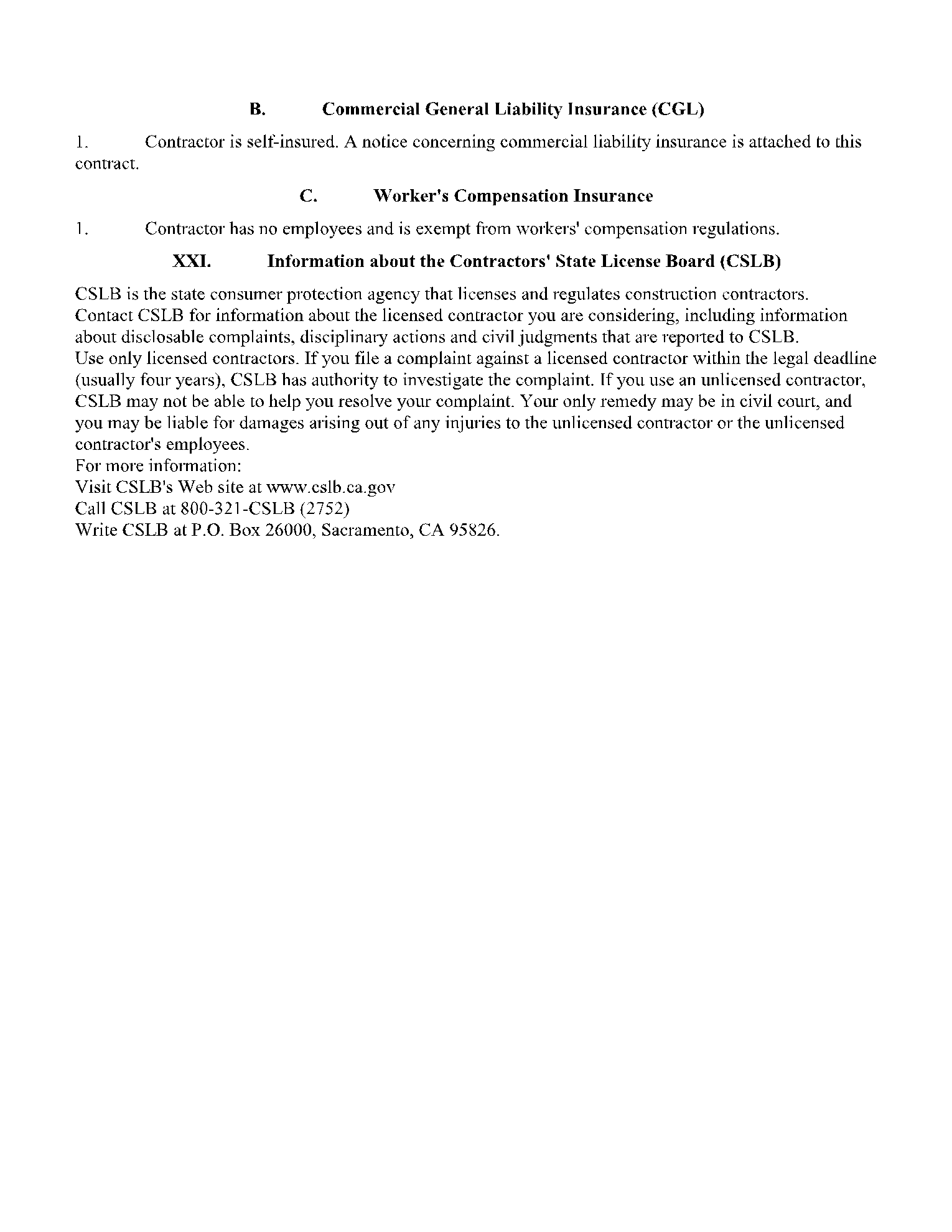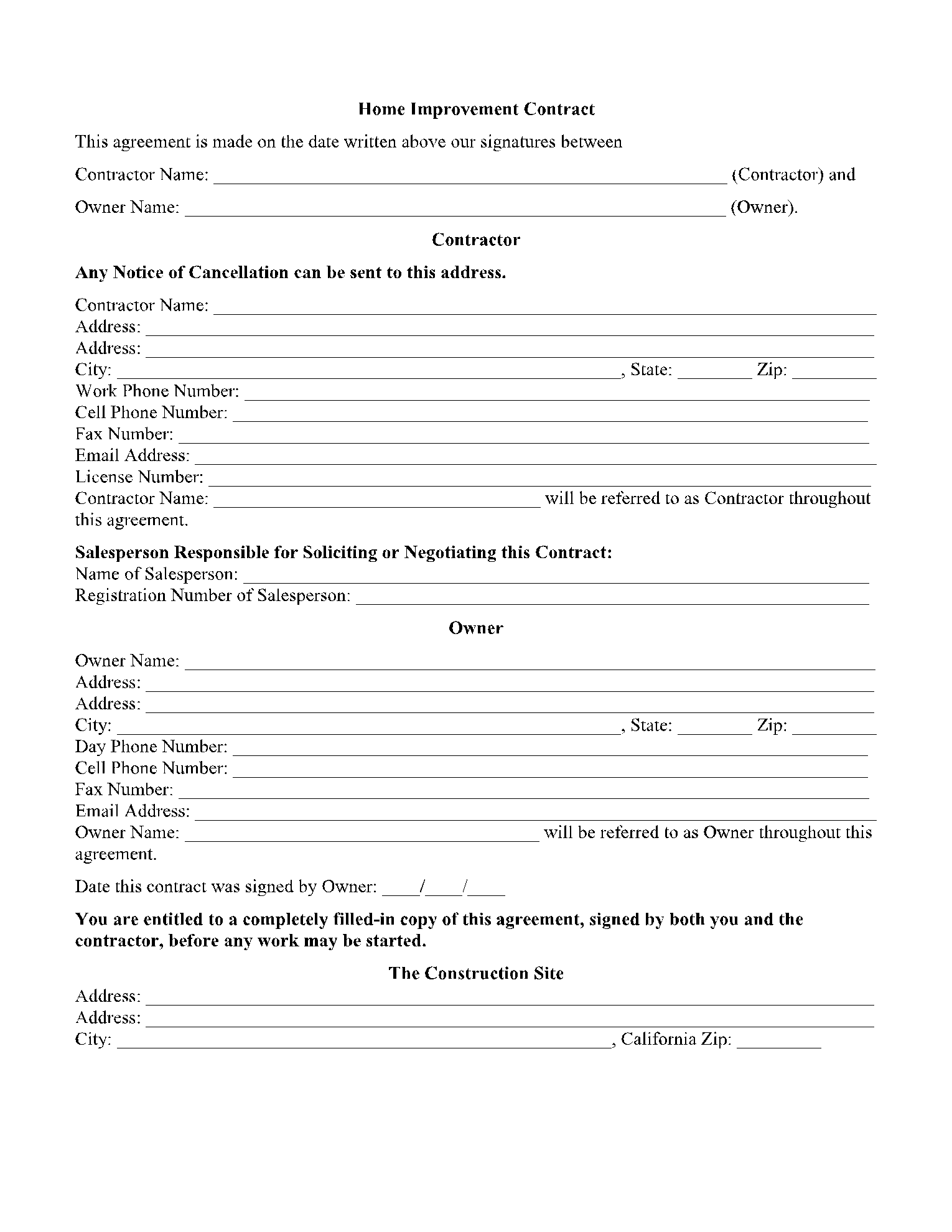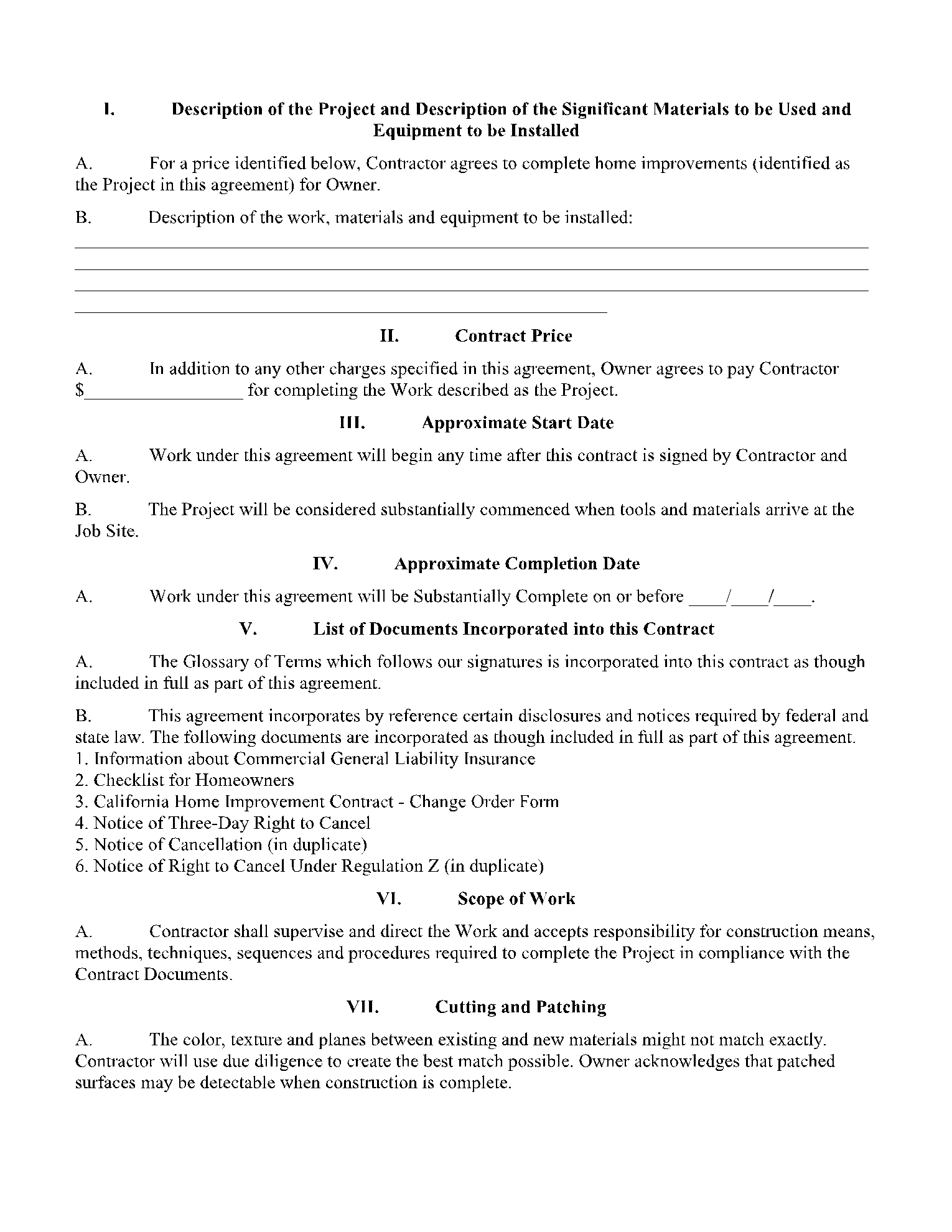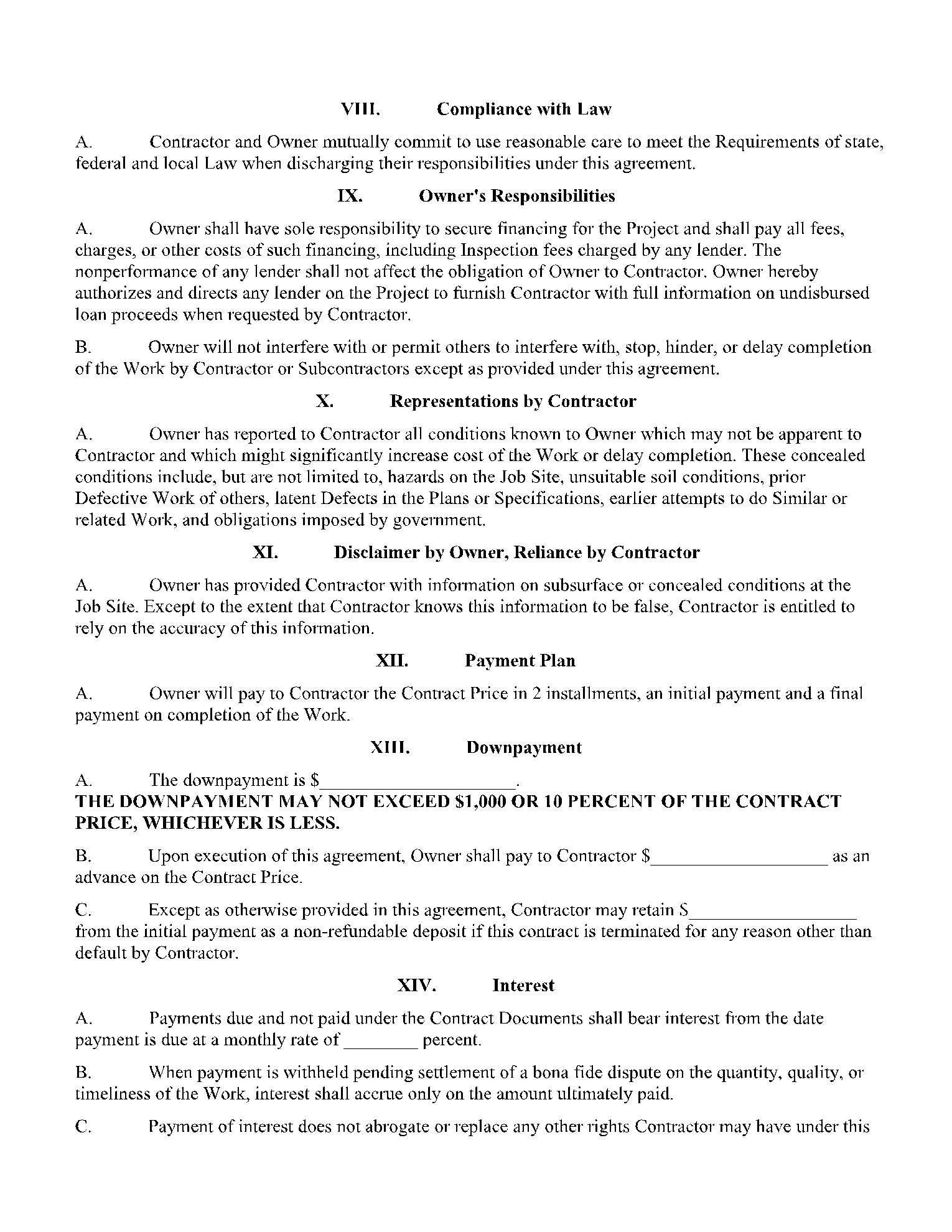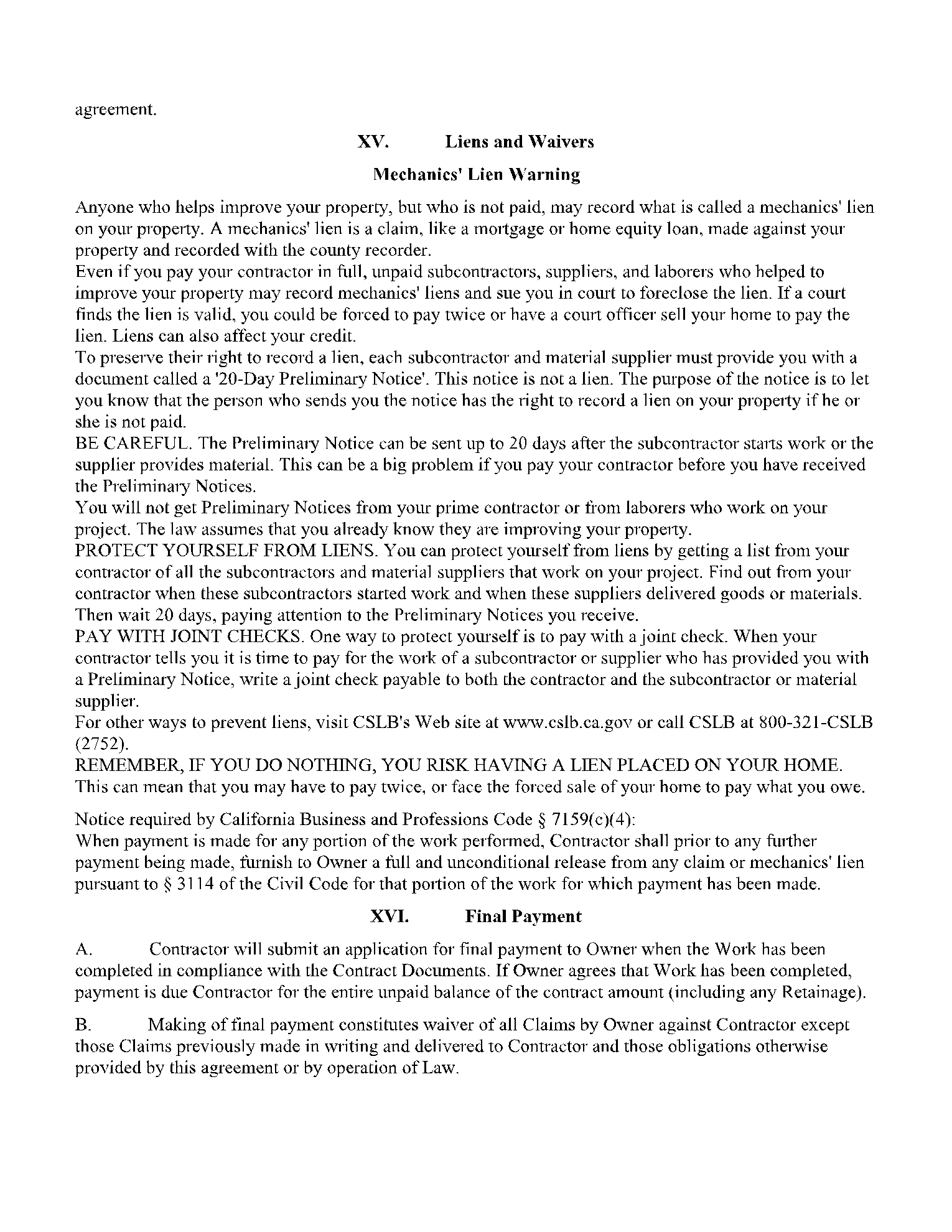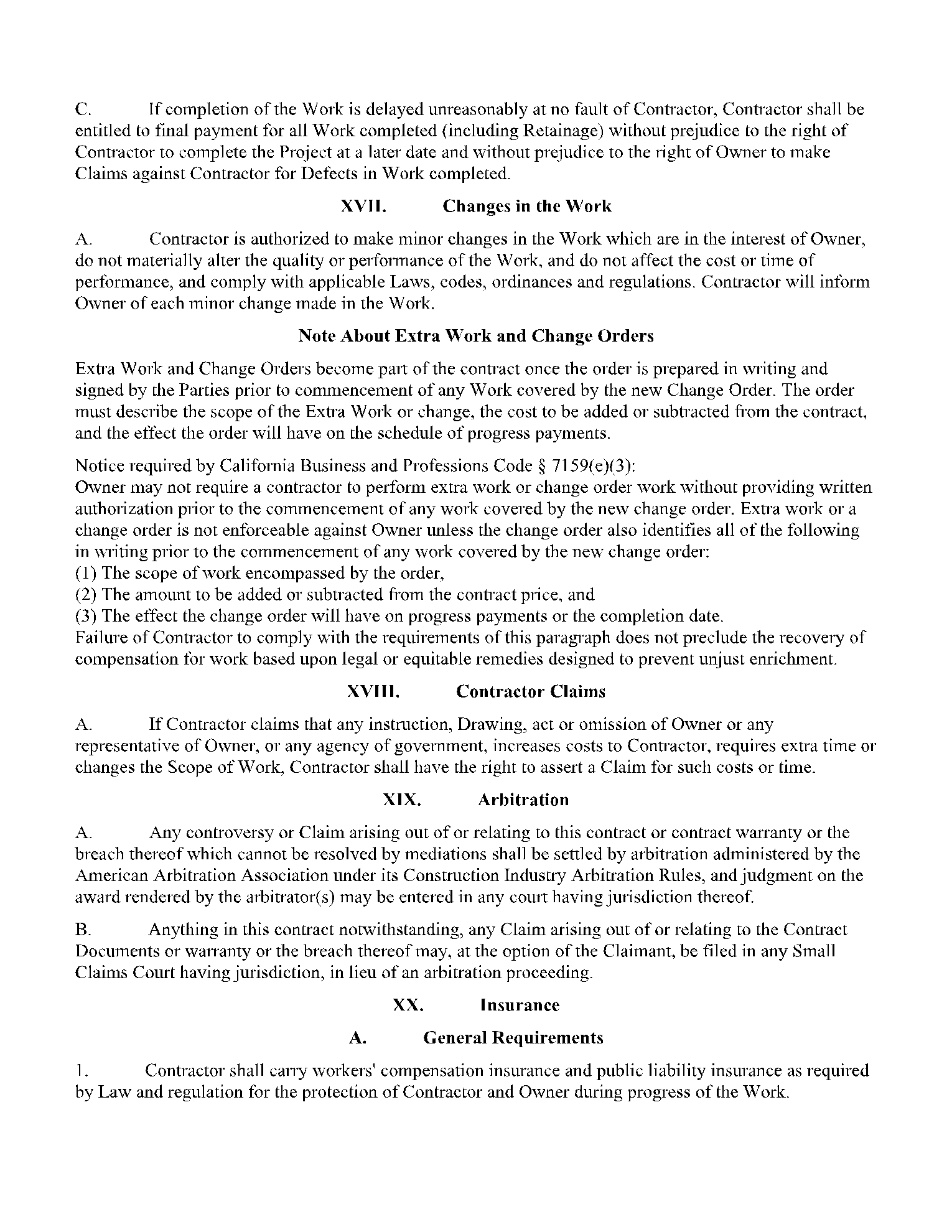A home whether new or existing is close to the heart of every homeowner. A home improvement contract comes in handy when a new or established home needs rework. From simple repairs to remodelling and redesign, a home improvement contract is instrumental in getting the work executed without hassle and protecting the interests of homeowners and the contractors alike.
Download Our Home Improvement Contract Template Now
Being a homeowner, you need to make sure that your rights and benefits are protected during the improvement process through a legally binded document. Grab a copy of our free and customizable home improvement contract template now for finalizing all necessary renovations in the house.
Get our FREE home improvement contract template.
What Is a Home Improvement Contract?
To explain in simple words, a home improvement contract lists out the details of home repair work to be done in clear terms and all details, in a legally binding manner and protects the interests and investment of home owners and contractors.
It is advisable to sign a home improvement contract even for simple contract works instead of a verbal commitment to minimize risk of damages and non payment issues. Carefully drafted home improvement contract templates for home owners and contractors can ensure smooth and timely completion of home repair tasks as defined in the contract.
What Is Included in a Home Improvement Contract?
A home improvement contract includes the following:
- Scope of work in a clearly defined manner related to home improvement tasks with timelines and any permissions, samples as needed
- Timeline of completion of the work in a phase wise manner and overall delivery date
- Payment terms upon each phase of completion along with final payment due clause
- Scope of changes and clauses related to the change completion, requirements, access, timelines and payment terms
- Approvals, licenses and work permits needed to complete the job along with submissions of needed documents, photocopies, permissions and government approvals if any
- Site details along with access permissions, time of entry and exit, number of staff and machines
- Costs related to the project broken down and itemized in alignment with the scope of work
- Contract cancellation terms clearly defined from both parties
- Inspection and approvals of the material, work underway and final submission
- Warranty details related to any products being installed
- Contact details of property owner and contractor with date and signature
Why Is a Home Improvement Contract Important?
A legal contract in written form is always binding to both parties. A home improvement contract ensures the work gets done, gets done right and is completed within scope, budget and time.
It also helps both parties see a high level summary of work to be done in a single, simple to read and understand document format. If you want to protect your property from damage or if you want to ensure that you get your payment in time and in a fair manner, getting the home improvement done after signing the contract is advisable.
Types of Home Improvement Contracts
Home improvement contracts can be of the following types:
These contracts are designed for contractors working on home repair services.
-
- Home improvement contract
These contracts are designed for contractors working on home enhancement services.
Irrespective of what your home improvement needs are, our contract templates are easy to use and fully customizable to your individual requirement.
Download Our Home Improvement Contract Template Now
Being a homeowner, you need to make sure that your rights and benefits are protected during the improvement process through a legally binded document. Grab a copy of our free and customizable home improvement contract template now for finalizing all necessary renovations in the house.
Get our FREE home improvement contract template.
Conclusion
In a nutshell, drafting a home improvement contract might be complicated, unless you have a proper template ready for you, making sure all essentials are included. This is where we can help you. CocoSign provides a whole range of professionally and legally drafted contract templates for your business needs.
Equipped with a range of home improvement contract templates for both buyers and contractors, you can draft your own contract hassle-free. All you need to do is to insert the relevant information and you are good to go!
Download our one click, easy to use free home improvement contract template now.
DOCUMENT PREVIEW
I. Description of the Project and Description of the Significant Materials to be Used and Equipment to be Installed
A. For a price identified below, Contractor agrees to complete home improvements (identified as the Project in this agreement) for Owner.
B. Description of the work, materials and equipment to be installed:
_____________________________________________________________________________________
_____________________________________________________________________________________
_____________________________________________________________________________________
_________________________________________________________
II. Contract Price
A. In addition to any other charges specified in this agreement, Owner agrees to pay Contractor
$_________________ for completing the Work described as the Project.
III. Approximate Start Date
A. Work under this agreement will begin any time after this contract is signed by Contractor and Owner.
B. The Project will be considered substantially commenced when tools and materials arrive at the Job Site.
IV. Approximate Completion Date
A. Work under this agreement will be Substantially Complete on or before ____/____/____.
V. List of Documents Incorporated into this Contract
A. The Glossary of Terms which follows our signatures is incorporated into this contract as though included in full as part of this agreement.
B. This agreement incorporates by reference certain disclosures and notices required by federal and state law. The following documents are incorporated as though included in full as part of this agreement.
1. Information about Commercial General Liability Insurance
2. Checklist for Homeowners
3. California Home Improvement Contract - Change Order Form
4. Notice of Three-Day Right to Cancel
5. Notice of Cancellation (in duplicate)
6. Notice of Right to Cancel Under Regulation Z (in duplicate)
VI. Scope of Work
A. Contractor shall supervise and direct the Work and accepts responsibility for construction means, methods, techniques, sequences and procedures required to complete the Project in compliance with the Contract Documents.
VII. Cutting and Patching
A. The color, texture and planes between existing and new materials might not match exactly. Contractor will use due diligence to create the best match possible. Owner acknowledges that patched surfaces may be detectable when construction is complete.
VIII. Compliance with Law
A. Contractor and Owner mutually commit to use reasonable care to meet the Requirements of state, federal and local Law when discharging their responsibilities under this agreement.
IX. Owner's Responsibilities
A. Owner shall have sole responsibility to secure financing for the Project and shall pay all fees, charges, or other costs of such financing, including Inspection fees charged by any lender. The nonperformance of any lender shall not affect the obligation of Owner to Contractor. Owner hereby authorizes and directs any lender on the Project to furnish Contractor with full information on undisbursed loan proceeds when requested by Contractor.
B. Owner will not interfere with or permit others to interfere with, stop, hinder, or delay completion of the Work by Contractor or Subcontractors except as provided under this agreement.
X. Representations by Contractor
A. Owner has reported to Contractor all conditions known to Owner which may not be apparent to Contractor and which might significantly increase cost of the Work or delay completion. These concealed conditions include, but are not limited to, hazards on the Job Site, unsuitable soil conditions, prior Defective Work of others, latent Defects in the Plans or Specifications, earlier attempts to do Similar or related Work, and obligations imposed by government.
XI. Disclaimer by Owner, Reliance by Contractor
A. Owner has provided Contractor with information on subsurface or concealed conditions at the Job Site. Except to the extent that Contractor knows this information to be false, Contractor is entitled to rely on the accuracy of this information.
XII. Payment Plan
A. Owner will pay to Contractor the Contract Price in 2 installments, an initial payment and a final payment on completion of the Work.
XIII. Downpayment
A. The downpayment is $_____________________.
THE DOWNPAYMENT MAY NOT EXCEED $1,000 OR 10 PERCENT OF THE CONTRACT PRICE, WHICHEVER IS LESS.
B. Upon execution of this agreement, Owner shall pay to Contractor $___________________ as an advance on the Contract Price.
C. Except as otherwise provided in this agreement, Contractor may retain $__________________ from the initial payment as a non-refundable deposit if this contract is terminated for any reason other than default by Contractor.
XIV. Interest
A. Payments due and not paid under the Contract Documents shall bear interest from the date payment is due at a monthly rate of ________ percent.
B. When payment is withheld pending settlement of a bona fide dispute on the quantity, quality, or timeliness of the Work, interest shall accrue only on the amount ultimately paid.
C. Payment of interest does not abrogate or replace any other rights Contractor may have under this
C. If completion of the Work is delayed unreasonably at no fault of Contractor, Contractor shall be entitled to final payment for all Work completed (including Retainage) without prejudice to the right of Contractor to complete the Project at a later date and without prejudice to the right of Owner to make Claims against Contractor for Defects in Work completed.
XVII. Changes in the Work
A. Contractor is authorized to make minor changes in the Work which are in the interest of Owner, do not materially alter the quality or performance of the Work, and do not affect the cost or time of performance, and comply with applicable Laws, codes, ordinances and regulations. Contractor will inform Owner of each minor change made in the Work.
Note About Extra Work and Change Orders
Extra Work and Change Orders become part of the contract once the order is prepared in writing and signed by the Parties prior to commencement of any Work covered by the new Change Order. The order must describe the scope of the Extra Work or change, the cost to be added or subtracted from the contract, and the effect the order will have on the schedule of progress payments.
Notice required by California Business and Professions Code § 7159(e)(3):
Owner may not require a contractor to perform extra work or change order work without providing written authorization prior to the commencement of any work covered by the new change order. Extra work or a change order is not enforceable against Owner unless the change order also identifies all of the following in writing prior to the commencement of any work covered by the new change order:
(1) The scope of work encompassed by the order,
(2) The amount to be added or subtracted from the contract price, and
(3) The effect the change order will have on progress payments or the completion date.
Failure of Contractor to comply with the requirements of this paragraph does not preclude the recovery of compensation for work based upon legal or equitable remedies designed to prevent unjust enrichment.
XVIII. Contractor Claims
A. If Contractor claims that any instruction, Drawing, act or omission of Owner or any representative of Owner, or any agency of government, increases costs to Contractor, requires extra time or changes the Scope of Work, Contractor shall have the right to assert a Claim for such costs or time.
XIX. Arbitration
A. Any controversy or Claim arising out of or relating to this contract or contract warranty or the breach thereof which cannot be resolved by mediations shall be settled by arbitration administered by the American Arbitration Association under its Construction Industry Arbitration Rules, and judgment on the award rendered by the arbitrator(s) may be entered in any court having jurisdiction thereof.
B. Anything in this contract notwithstanding, any Claim arising out of or relating to the Contract Documents or warranty or the breach thereof may, at the option of the Claimant, be filed in any Small Claims Court having jurisdiction, in lieu of an arbitration proceeding.
XX. Insurance
A. General Requirements
1. Contractor shall carry workers' compensation insurance and public liability insurance as required by Law and regulation for the protection of Contractor and Owner during progress of the Work.
Information about Commercial General Liability Insurance
[ ] Did your contractor tell you whether he or she carries Commercial General Liability Insurance?
Home improvement contractors are required by law to tell you whether or not they carry Commercial General Liability Insurance. This written statement must accompany the bid, if there is one, and the contract.
[ ] Is this insurance required?
No. But the Contractors State License Board strongly recommends that all contractors carry it. The Board cautions you to evaluate the risk to your family and property when you hire a contractor who is not insured. Ask yourself, if something went wrong, would this contractor be able to cover losses ordinarily covered by insurance?
[ ] How can you make sure the contractor is insured?
If he or she is insured, the contractor is required by law to provide you with the name and telephone number of the insurance company. Check with the insurance company to verify that the contractor's insurance coverage will cover your project.
[ ] What about a contractor who is self-insured?
A self-insured contractor has made a business decision to be personally responsible for losses that would ordinarily be covered by insurance. Before contracting with a self-insured contractor, ask yourself, if something went wrong, would this contractor be able to cover losses that should be covered by insurance?
Contractor is self-insured.
For more information about Commercial General Liability Insurance, contact the Contractors State License Board at www.cslb.ca.gov or call 1-800-321-CSLB (2752).
Glossary of Terms
Bond means the security offered by a licensed surety company which may be used to satisfy a claim of failure to perform obligations undertaken in this Agreement.
Change Order is a written modification of the Contract Price (including all claims for direct, indirect and consequential damages and costs of delay), Time for Completion, and Scope of Work under this Agreement. A Change Order, once signed by all parties, is incorporated into and becomes a part of the Contract Documents.
Claim means a demand or assertion by one of the parties to this Agreement seeking, as a matter of right, modification, adjustment or interpretation of contract terms, payment of money, extension of time or other relief.
Contract Completion Date means the day by which the Work must be substantially complete.
Contract Documents are this Agreement and all documents incorporated by reference into this Agreement.
Contract Price is the amount which will become due in exchange for work performed under this Agreement. Contract Price includes allowances for purchased materials and equipment and may be modified by a Change Order or contract modification. The Contract Price may be paid in one or more installments, including an Initial Payment at or before the start of work, Progress Payments as work is completed, and a Final Payment on final acceptance of the work. Payment Period is the time elapsed between applications for progress payments or prior to the first application for progress payment.
Contractor is an individual, partnership, firm, corporation, joint venture, or other legal entity undertaking the execution of the Work under the terms of this Agreement.
Defective Work means construction done under this Agreement that is unsatisfactory, faulty, omitted, incomplete, deficient, or does not conform to the requirements of the Contract Documents, directives of Owner's Representative, or the requirements of an inspection, reference standard, test, or approval specified in the Contract Documents.
Drawings (also called plans or prints) are scale representations of the shape, location, character and dimensions of Work to be completed under this contract. Drawings include plan views, elevation views, transverse and longitudinal sections, large and small scale sections and details, isometrics, diagrams, schedules, tables, data and pictures which depict the completed Project. A group of drawings adequate to complete construction of the Project may be referred to as a plan set. Drawings can be either paper or electronic media.
Extra Work means any change, interpretation, clarification or correction in the Contract Documents or in applicable law, ordinance or regulation which would increase or decrease the quantity of work, delay, suspend or interfere with the work, require an addition to or omission from the work, change the character, quality or nature of any part of the work or material used in the work, change levels, lines,
positions or dimensions of any part of the work, require demolition or removal of any work completed under this Agreement, extend or amend the normal work day, alter the construction schedule or require completion of any part of the work at a time other than provided by this Contract when originally made.
Furnish means to supply and deliver to the job site.
Inspection is any review of the Project, including a visual review of the Work completed to ascertain compliance with Contract Documents, building codes and construction standards.
Job Site is the address or location of the Project.
Law means federal or state statutes, municipal ordinances, building codes, regulations adopted pursuant to statute, executive orders, official interpretations, and other rules and directives issued by government.
Material Supplier means any manufacturer, fabricator, distributor, materialman or vendor who provides material for the Project but does not provide on-site labor.
Party (to this contract) means a person or business organization which has an obligation to perform under the terms of this contract.
Plans (also called drawings or prints) are scale representations of the shape, location, character and dimensions of Work to be completed under this contract. Plans include plan views, elevation views, transverse and longitudinal sections, large and small scale sections and details, isometrics, diagrams, schedules, tables, data and pictures which depict the completed project. A group of plans adequate to complete construction of the Project may be referred to as a plan set. Plans can be either paper or electronic media.
Requirements means, in addition to obligations, responsibilities and limitations set out in the Contract Documents, the obligations, responsibilities and limitations imposed by law, rules, orders, ordinances, regulations, statutes, codes and executive orders of governmental authorities or fire rating bureaus.
Retainage is a portion of each progress payment temporarily held back or retained by the owner. Accumulated retainage is released to Contractor on satisfactory completion of the work.
Scope of Work means the Work as defined by the Contract Documents.
Similar means having a like kind, quality and characteristics. Similar is not to be construed as meaning identical or by the same manufacturer.
Specifications (also called specs) are the part of the Contract Documents which provide descriptions of materials, equipment, construction systems, technique and workmanship to be used on the Project. Specifications are both instructions to be followed by the Contractor and Subcontractors and a reference for the Building Official to evaluate code compliance.
Subcontractor is any person or business entity under contract to a general contractor to perform some
